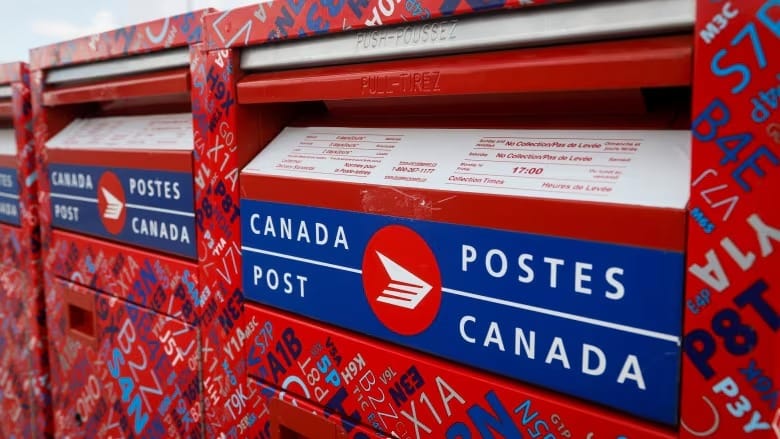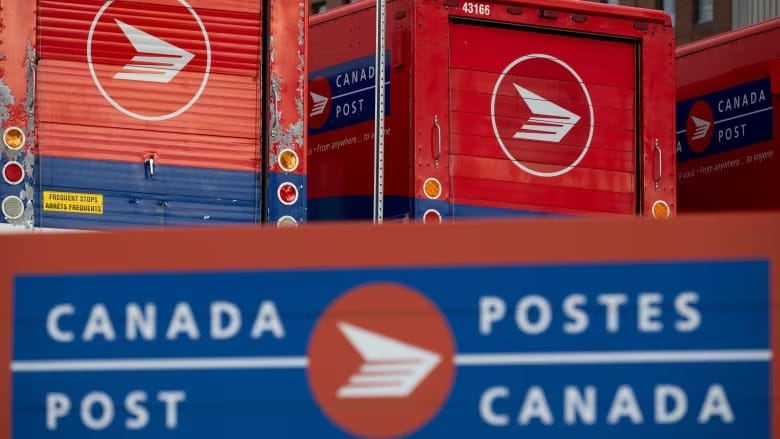Canada Post says strike threat is already affecting revenue
Customers switching delivery services over fears that packages won't be delivered, Crown corporation says

Canada Post is reporting a significant impact on its revenue due to the threat of a strike, as customers concerned about holiday deliveries are turning to other carriers.
In a statement released Monday night, the Crown corporation said, "Retailers require certainty for their shipments at this critical time of year and are moving their parcels to other delivery companies." It also noted that "customers have canceled direct marketing campaigns to avoid having items stuck in the postal network in the event of a strike."
The statement highlighted that mail and parcel volumes are "down significantly and continue to erode," warning that the ongoing strike threat will worsen the company's already declining financial position.
Canada Post and its unionized workers have been in contract negotiations for almost a year, and last month, 95 percent of the workforce voted in favor of a strike. Negotiations continued over the weekend, and both sides became more combative in their statements on Monday. The union must give Canada Post 72 hours' notice before a strike can begin.
"If there is no real movement at the bargaining table, we won't shy away from taking the next step," said the Canadian Union of Postal Workers (CUPW) in a media release Monday.
Canada Post echoed the urgency in its statement, saying, "Urgency is now required. Our deteriorating financial situation could require the company to revisit its proposals."
The union revealed it presented a second offer to Canada Post on Tuesday, stating, "Unlike Canada Post's proposals, our demands offer real solutions: fair wages, health and safety, the right to retire with dignity and expansion of services at the public post office."
A major point of contention remains weekend delivery. Canada Post, which has lost $3 billion since 2018, including $490 million in the first half of 2024, has said it needs to expand parcel delivery on evenings and weekends to compete with other carriers. Both sides have emphasized the importance of weekend delivery, with Canada Post noting that the union has been "resistant to change" or imposed significant constraints on flexible delivery proposals.
The union countered, saying it wants to ensure that changes won't compromise regular full-time weekday routes. "We are not satisfied that the employer's plan will protect our weekday work," the union stated, accusing Canada Post of focusing on "flexibility" to cut delivery costs.
CUPW also expressed frustration over Canada Post's reluctance to improve its short-term disability plan, stating, "The employer demonstrated little willingness to consider our demand to include 10 medical days and seven personal days as part of our collective agreements."
Federal Labour Minister Steven MacKinnon, who appointed federal mediators in mid-October, confirmed that efforts to avoid a strike continue. "These are very tough negotiations. There are some major issues at play. The good news is that the parties are still dialoguing," MacKinnon said Tuesday.
Meanwhile, Matt Poirier, vice-president of federal government relations at the Retail Council of Canada, said retailers are "spooked" by the possibility of a disruption during the crucial holiday season. "They really can't afford to not have their packages or their goods moving. So that's why they've been looking at all options and finding alternatives where they can," Poirier said. He emphasized the importance of a swift resolution: "It's very important for all the parties involved in the talks to find a resolution as quickly as possible."





